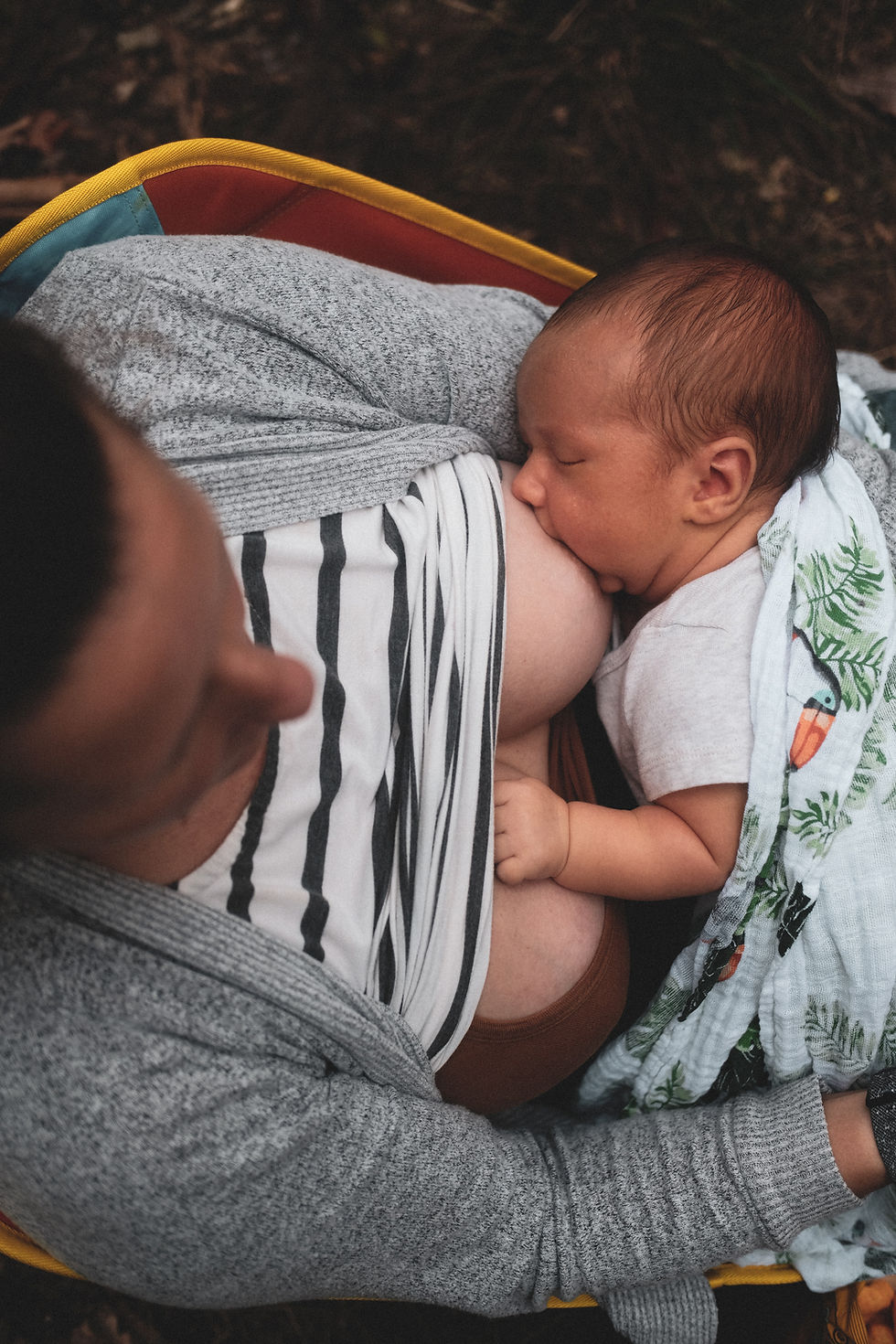Managing Morning Sickness
- caultobloom
- Jan 25, 2023
- 2 min read
Updated: Mar 9, 2024
'Morning sickness' can occur at any time of the day. The cause is unknown although it has been linked to changes in the levels of various hormones during pregnancy. It usually starts at about the sixth week of pregnancy and settles by about the fourteenth week. Some women will not be affected by morning sickness, but in others it can be so bad they have to be hospitalised.
Generally the baby is unaffected by morning sickness unless your symptoms are severe and prolonged. However, it is probably a good idea to see a health professional if you were not eating well before pregnancy, you have lost a lot of weight quickly, you are dehydrated or you are worried about your health and how you are feeling.

Things you can do to help
Drink plenty of fluids
It is important to drink plenty of fluids as dehydration makes nausea and vomiting worse.
Drink small amounts often.
Sometimes other fluids are managed better than water. Try bone broth, diluted fruit juice, weak tea, flat lemonade, hydrolyte drinks (available from your local pharmacy)
Suck on ice or ice blocks if other fluids cannot be managed.
Some people find ginger helps relieve nausea. Try dry ginger ale or ginger tea. To make ginger tea, soak three or four slices of ginger in boiling water for five minutes. Sip slowly. Ginger tablets are also available from your local pharmacy.
Reduce the severity of your symptoms
Eat small amounts of food more often, rather than large meals.
Avoid having an empty stomach. Snack in between mealtimes, e.g. crackers, fruit, veggie sticks, toast.
Early morning nausea may be helped by eating something small and plain when you first wake up, before getting out of bed or by snacking during the night if you wake up.
Salty foods may help. Try salted popcorn or salty crackers.
Try sucking on a barley sugar.
Avoid fatty, rich or spicy foods like takeaways, curries, hot chips, chocolate.
Make the most of your best time of the day – eat well when you feel best or whenever you feel hungry during the day.
If the smell of hot food makes you feel ill – try eating cold food instead. If possible, avoid cooking and ask for help from friends and relatives.
Choose simple dishes that are quick and easy to prepare.
Get plenty of rest.
Foods you can try:
Plain crackers
Toast
Sandwiches
Bone broth
Fresh fruit
Yoghurt
Steamed chicken
Boiled or scrambled eggs
Boiled rice
Mashed potato
Severe morning sickness
A small percentage of women suffer from excessive and prolonged vomiting, called 'hyperemesis'. If left untreated, hyperemesis can lead to dehydration. It is important to see your doctor if symptoms are severe.





